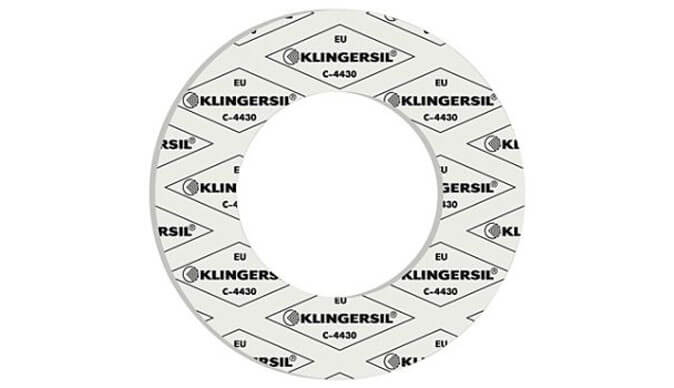Non-asbestos fibre, also known as non-asbestos gasket material, is a versatile and reliable alternative to traditional asbestos-based materials. Asbestos, once a common choice for its heat and chemical resistance, has fallen out of favour due to its health risks.
Non-asbestos fibre materials have gained prominence in various industrial applications, offering numerous benefits while maintaining a commitment to safety and environmental concerns.
This article explores the advantages, uses, and material properties of non-asbestos fibre.
Benefits of Non-Asbestos Fibre:
- Safety: The most significant benefit of non-asbestos fibre is its safety. Unlike asbestos, which poses severe health risks when disturbed, non-asbestos materials are free from asbestos fibres and do not carry the associated health hazards, making them safer for workers and the environment.
- Excellent Thermal Resistance: Non-asbestos fibre gaskets and seals are well-suited for high-temperature applications, withstanding extreme heat without losing their sealing properties. This characteristic is essential in industries like petrochemical, power generation, and automotive.
- Chemical Resistance: Non-asbestos fibre materials exhibit good chemical resistance, making them suitable for sealing applications where exposure to a wide range of chemicals, acids, and bases is a concern. This versatility allows them to excel in the chemical processing and manufacturing industries.
- Flexibility and Conformability: Non-asbestos gasket materials are flexible and conformable, enabling them to create a tight seal even on irregular or imperfect flange surfaces. This property helps prevent leaks and minimizes downtime.
- Reduced Environmental Impact: Non-asbestos fibre materials are more environmentally friendly than asbestos-containing alternatives. They do not release asbestos fibres into the environment, contributing to improved workplace and ecological safety.
- Cost-Effective: Non-asbestos gaskets and seals are cost-effective solutions. They offer similar performance to traditional asbestos materials without the associated health and disposal expenses.
Uses of Non-Asbestos Fiber:
- Automotive Industry: Non-asbestos gaskets and seals are used extensively in engine components, exhaust systems, and transmissions due to their resistance to heat and chemicals.
- Oil and Gas Industry: They are employed in oil and gas processing equipment, pipelines, and valves, where heat and chemical resistance are essential for maintaining operational integrity.
- Chemical Processing: Non-asbestos fibre materials find applications in pumps, valves, and flange connections within chemical plants and refineries.
- Power Generation: In power plants, these gaskets and seals are used to create reliable joints in high-temperature and high-pressure systems, such as steam turbines and boilers.
- Aerospace and Aviation: Non-asbestos materials are used in aircraft engines and other critical systems due to their ability to withstand extreme temperatures and pressures.
- Marine Industry: They play a role in sealing shipboard equipment and piping systems, offering resilience against harsh marine conditions and chemicals.
- Pharmaceutical and Food Processing: Non-asbestos gaskets are utilized in processing equipment within pharmaceutical and food manufacturing, ensuring sanitary and contaminant-free operations.
Material Properties of Non-Asbestos Fiber:
- Composition: Non-asbestos fibre gasket materials typically consist of a combination of synthetic fibres, fillers, and binders. Common fibre materials include aramid, fiberglass, and various elastomers.
- Temperature Range: Non-asbestos materials can withstand temperatures ranging from sub-zero to several hundred degrees Celsius, depending on the specific material composition.
- Compressibility: They possess good compressibility, allowing them to adapt to irregular flange surfaces and provide effective sealing.
- Tensile Strength: Non-asbestos fibre materials exhibit high tensile strength, ensuring durability and resistance to mechanical stress.
- Chemical Resistance: They are resistant to a wide range of chemicals, making them suitable for use with various fluids and gases.
- Creep Resistance: Non-asbestos gaskets maintain their sealing integrity even under sustained pressure and temperature conditions, reducing the risk of leaks over time.
In conclusion, non-asbestos fibre materials offer a safe, reliable, and environmentally friendly solution for sealing applications across diverse industries. Their excellent thermal and chemical resistance, coupled with their flexibility and cost-effectiveness, make them a preferred choice for ensuring leak-free operations in critical systems. These materials not only protect against potential health risks but also contribute to a safer and more sustainable industrial landscape.


